#jean pierre roy
Explore tagged Tumblr posts
Text

Jean-Pierre Roy (American, 1974) - Curiosity Fire (2023)
793 notes
·
View notes
Text

Jean-Pierre Roy (American, b. 1974) Hide Us in the Flat Spaces (2006) Oil on panel
102 notes
·
View notes
Text
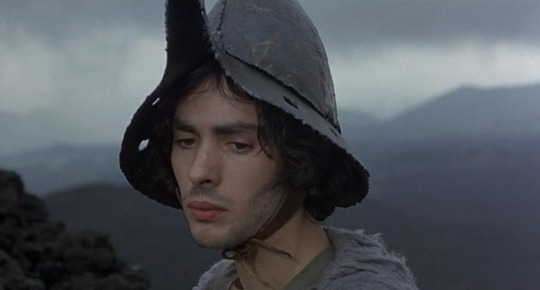
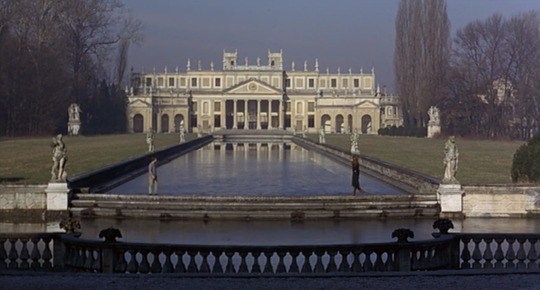
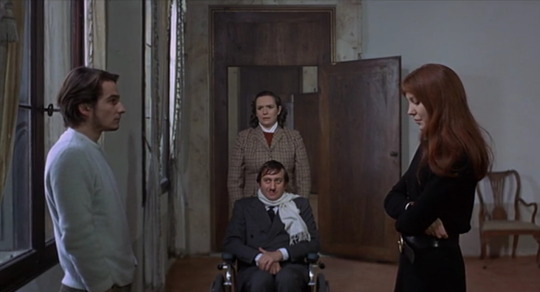


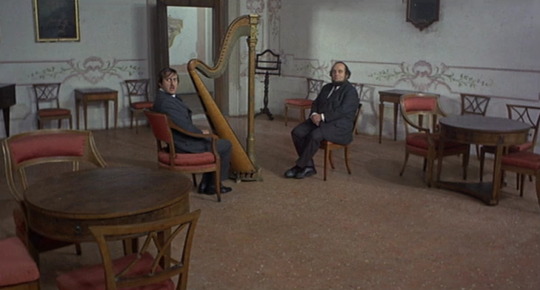
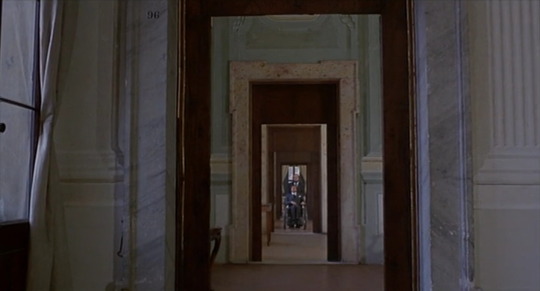
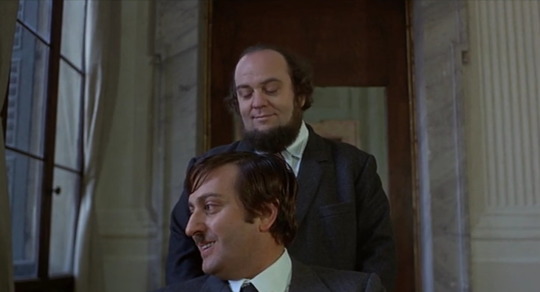
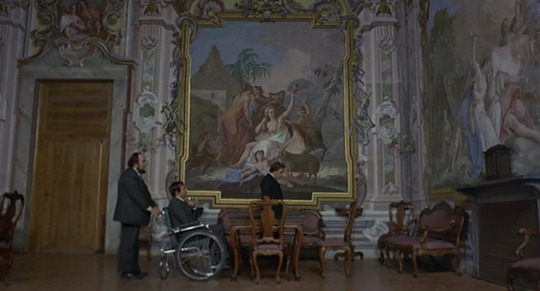
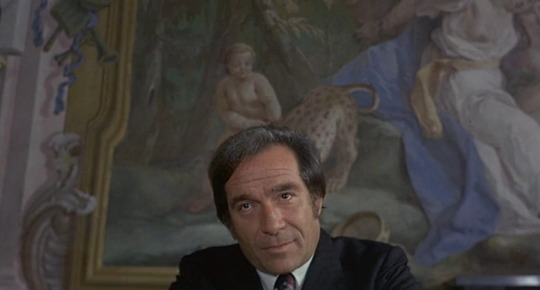


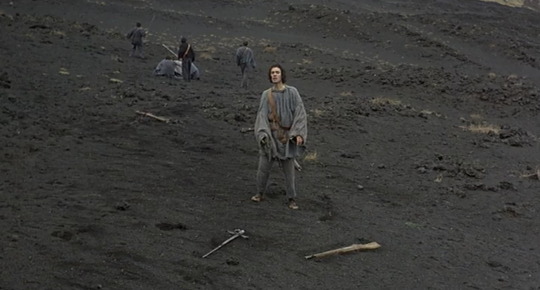

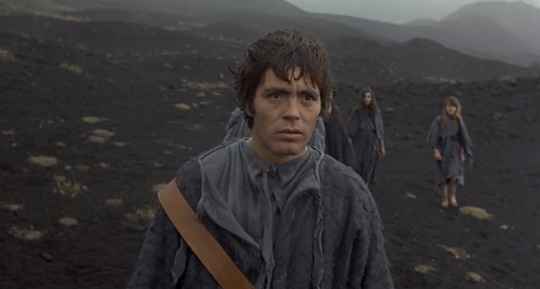
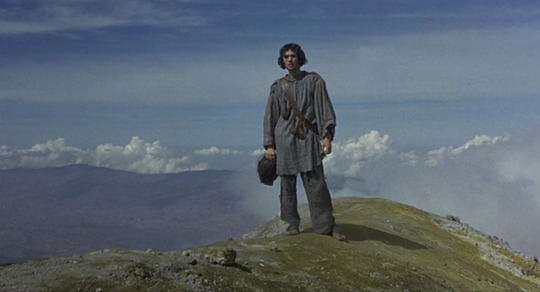
#porcile#pier paolo pasolini#1969#jean pierre-léaud#anne wiazemsky#ugo tognazzi#franco citti#pierre clémenti#salo#el jardín de las delicias#il gattopardo#macbeth#au hasard balthazar#aquirre der zorn gottes#satansbraten#tätowierung#elisabeth II#le roi se meurt
80 notes
·
View notes
Text



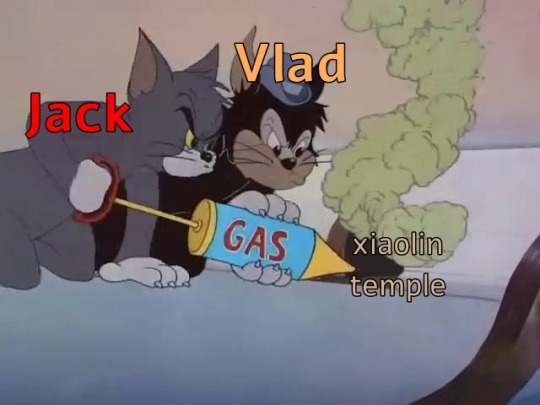



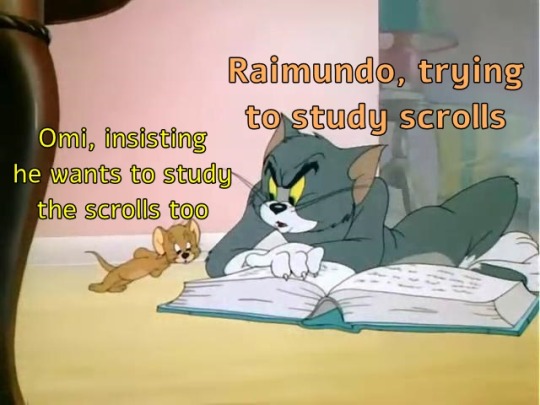
me, a couple of days ago: yeah, Jack and Omi are like Tom and Jerry
also me: (sees potential for other characters to fit into some Tom and Jerry screens) Welp, now I can't unsee this.
#xiaolin showdown#memes#omi#jack spicer#vlad#xs vlad#vlad and jack brotp#raimundo pedrosa#jack and megan cousin duo#xiaolin chronicles#ping pong#wuya#hannibal roy bean#kimiko tohomiko#pandabubba#xc jack spicer#xc omi#Boris Antonio Rolf Jean-Pierre Gaulle LeGrand IV#megan spicer
63 notes
·
View notes
Text

Jean Pierre Robert Leleu Gracia (here pictured with wife Gioconda Úbeda Rivera) is Jean Roy (real name Yves Leleu) and Lucita Gracia Vidal's son.
Jean Pierre Robert Leleu was born in France, in Boulogne-Billancourt and he has two brothers Yves and Marco Fabio Leleu Gracia.
He worked for Warner Bros as a producer, he also was CINEMARK programming director for Mexico and Central America and he was member of the Board of Directors of CANACINE (National Chamber of the Film and Video Industry). In 2004 he organised the "Día de cine mexicano...Cinemark a la mexicana" and two years later, in 2006 he was the secretary of "NAHUALA PRODUCCIONES CINEMATOGRÁFICAS".
Hi wife Gioconda worked as an ambassador of Mexico in several countries.

In July 2012 Jean Pierre Leleu Gracia is pictured with Australia's ambassador Katrina Anne Cooper at Mexican embassy to say farewell to French ambassador who was working there. (more info)

In August 2012 Jean Pierre Leleu Gracia and wife Gioconda are pictured with Wendy Cross and Algerian ambassador Aldelhamid Albrous at the Moroccan Embassy where it was celebrated it's National day. (more info)
Very special thanks to @74paris for this photos and information.
#Jean Pierre Leleu Gracia#Gioconda Úbeda Rivera#Lucita Gracia Vidal#Jean Roy#Yves Leleu#Gracia Family#cinema producer#Seventh Art#producer#director#secretary#collaboration
4 notes
·
View notes
Text
The “Circulaire Ricard”
This is a horribly long text that will most likely only be interesting to me, but just in case: This is the main evidence against Soult in the “Roi Nicolas” affair of spring 1809, during his stay in Porto, when he was accused of wanting to make himself king of the country. It’s a circular, sent to all generals under Soult’s command in Portugal, put together by Soult’s chief-of-staff general Ricard - who in the end became the main victim in this affair, as he was recalled from his post and fell in disgrace for two years. It’s quoted in Nicole Gottéri, “Le maréchal Soult et la royauté de Portugal”.
Mon General,
His Excellency, the Marshal Duke of Dalmatia, has asked me to let you know about the dispositions of the great majority of the inhabitants of the province of Minho.
The city of Braga, one of the first to take part in the insurrection, was also the first to speak out in favour of a change of system that would assure the future peace and tranquility of their families and the independence of Portugal. The corregidor whom H.E. had appointed had withdrawn to Oporto when the French troops left, fearing that the numerous emissaries Silveira was sending would stir up further disturbances and threaten his life. The inhabitants then expressed the wish that this worthy magistrate be sent back to them and a deputation of twelve members was sent for this purpose by H. E. Meanwhile, Silveira's emissaries were arrested and imprisoned.
So, to sum up: The French had entered Braga, Soult had appointed somebody and told him »You’re in charge here now«, and this guy then, when the French army moved on to Oporto, ran after them crying “As soon as the first insurgent shows up, people will kill me”? - Great pick, Soult.
Except that the people of Braga apparently had not risen up against the French, and had rather taken captive the insurgents.
In Oporto and Barcelos, the inhabitants have also expressed the same sentiments and all feel the need to have a rallying point for well-meaning citizens, for the defence and salvation of the fatherland and for the preservation of property.
Well, if all the local administrators ran after the French in search of protection before even the first enemy showed up, I can see the need for some central government institution.
On this subject, new deputations have been presented to H.E. to beg her to approve that the people of the province of Minho should express the genuine wish to depose the house of Braganza [whose members had fled to Brazil] from the throne and that at the same time H.M. the emperor and king should be begged to appoint a prince of his own house or choice to reign in Portugal; but that while waiting for the emperor to make known his intentions on this subject, H. E. the duke of Dalmatia would be asked to take the reins of government, to represent the sovereign, and to assume all the functions of supreme authority, the people promising and swearing to be faithful to him, to support him and to defend him at the expense of their lives and fortunes against all opponents and even against insurgents from the other provinces, until the complete submission of the kingdom.
This is, I guess, the most damning part. “Assume all the functions of supreme authority” would later be the expression that Napoleon repeated during his interview with Brun de Villeret in Schönbrunn. How dare Soult? - Yet, and this seems to be true: This was not without precedent. To the contrary. The same thing had happened when Junot had entered Lisbon the year before. As Soult mentioned in a conversation with Saint-Chamans (who, being Saint-Chamans, swallowed the whole Roi-Nicolas accusation hook, line and sinker), it was even the same wording as the declarations that had been made to Junot. When Murat was in Madrid, Napoleon himself had urged him to get a very similar declaration from the locals - that those gave only very reluctantly and with plenty of caveats. Of course, those had been authorized by Napoleon. But, as Soult also mentioned in that conversation with his ADC, there was no way to get in contact with him. Or anyone. Soult’s 20,000 men in Portugal were completely isolated and had not yet managed to get in touch with any of the corps supposedly supporting them.
The marshal accepted these proposals and authorised the corregidors of the counties to have the chambers assembled, to call deputies from all the orders of the corporations and of the people in the countryside to draw up the act which must be done and to affix to it the signatures of all the citizens. He ordered me to inform you of these provisions so that, in the district where you are in command, you promote their execution and that you then propagate the effect of them on all the points of the kingdom where you will be able to send the news.
The Marshal has not dissimulated to himself that an event of such great importance will astonish many people and must produce various impressions, his soul is too pure for him to think that any ambitious project is attributed to him.
Yeah, let’s see how far this will get you, honeybunch.
In all that he does, he sees only the glory of His Majesty's arms, the success of the expedition entrusted to him and the well-being of an interesting nation which, in spite of its errors, is still worthy of our esteem. He feels confident of the army's affection [...]
Let’s see about that, too...
[...] and he burns with the desire to present it to the Emperor glorious and triumphant, having fulfilled the commitment which His Majesty herself made to plant the imperial eagle on the forts of Lisbon after an expedition as difficult as it was perilous, in which, every day, we were in the necessity of winning.
At which point every general of Soult’s corps and every other reader including me thinks: He doth protest much ...
Nor has His Excellency concealed from himself the fact that, since Burgos, the army has had to sustain continuous combats. He has considered how to avoid in the future the evils caused by this state of war and he has found none more suitable than that offered by the great majority of the inhabitants of the principal towns of Minho, especially as he hopes that this example will be propagated to the other provinces and that this beautiful country will thus be preserved from new calamities. His Majesty's intentions will be sooner and more gloriously fulfilled and our presence in Portugal, which at first had been a cause of fear for the inhabitants, will be seen there with pleasure while at the same time it will contribute to neutralizing the efforts of the enemies of the Emperor in this part of the continent.
Soult: Look, if the locals say they want us here, we don’t need to fight.
Army: ... Our marshal has a strange concept of war ...
The task which the Marshal has imposed on himself in this circumstance is immense, but he has the courage to embrace it and he believes that he will be able to carry it out successfully, if you are willing to help him in its execution. He wishes you to propagate the ideas which I have just communicated to you, and to ensure that any authorities or citizens who embrace the new system are protected in a particular way, by putting them in a position to pronounce themselves and to act accordingly in the future. You will watch more carefully than ever over the conduct of your troops, prevent them from committing any damage or insult which could irritate the inhabitants, [...]
Army: Wait! Is he saying we are not allowed to loot?
[...] and you will be good enough, General, to frequently inform His Excellency of the spirit of the inhabitants and of the results which you have obtained...
Army: We must write to the emperor! Let’s mutiny! Let’s conspire with the English! This is outrageous!
7 notes
·
View notes
Text
Fire Judges -- Jean-Pierre Roy
Fire Judges — Jean-Pierre Roy
Fire Judges, 2022 by Jean-Pierre Roy (b. 1974)

View On WordPress
11 notes
·
View notes
Text
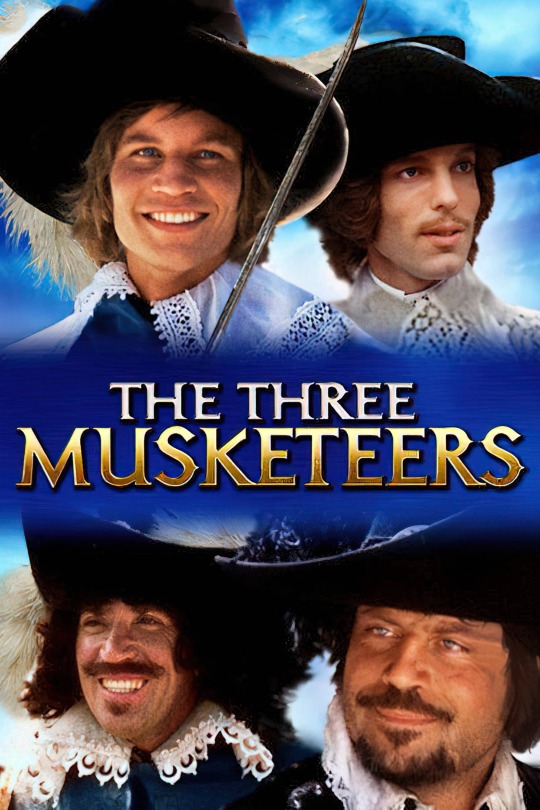

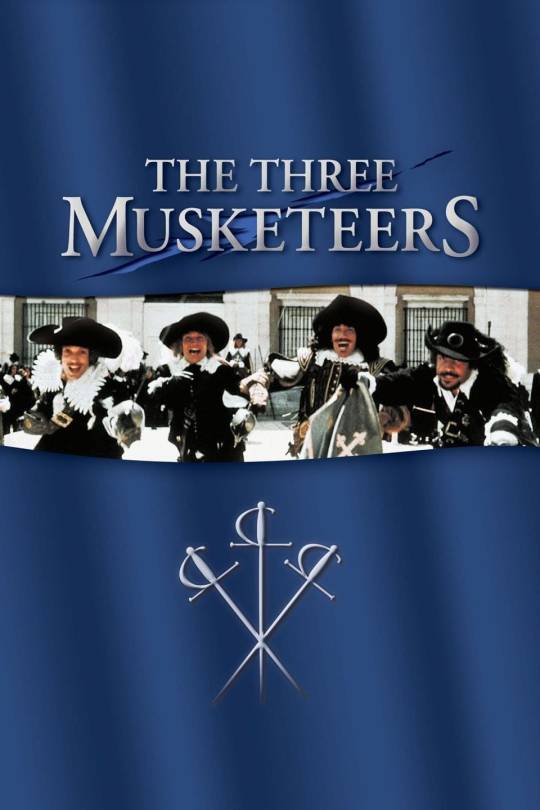

W A T C H E D
#THE THREE MUSKETEERS (1973)#MICHAEL YORK#OLIVER REED#RICHARD CHAMBERLAIN#FRANK FINLEY#CHRISTOPHER LEE#RAQUEL WELCH#Geraldine Chaplin#Faye Dunaway#Charlton Heston#Jean-Pierre Cassel#Simon Ward#Joss Ackland#Sybil Danning#Roy Kinnear#Frank Thornton#WATCHING
3 notes
·
View notes
Photo

EL DIARIO MONTAÑÉS
#quim bou#paco zarco#jean-claude gal#jean pierre dionett#john buscema#roy thomas#bea gutierrez#roberto corroto
1 note
·
View note
Text

Jean-Pierre Roy (American, 1974) - No Tools for These Beasts (2023)
190 notes
·
View notes
Text

Jean-Pierre Roy (American, b. 1974) The Only Oracle (2012) Oil on canvas
57 notes
·
View notes
Text
Very interesting article and interview with journalist Enrique Meneses, in this interview he mentions Jean Roy, his widow Lucita Gracia Vidal, their three children: Yves, Jean-Pierre and Marco Leleu Gracia and one of Lucita's grandson: Damien Leleu.
In Egypt, Yves Leleu used the pseudonym Jean Roy to protect the identity of his family: little Yves, Jean-Pierre and Marco, and his wife, Luz Montez, to whom he promised that he would take out life insurance and that that would be the last risky mission after seven years covering armed conflicts for the French weekly. He would only keep a promise, remembers his grandson, Damien Leleu. In Cairo, the photographer repaired an army Jeep with the license plate "Balzac 0024", the Paris Match telephone number. On November 10, 1956, David Seymour—founder of the Magnum agency—and Jean Roy ventured across “no man's land” in that off-road vehicle. A company that cost them their lives.
Very special thanks to @74paris for sharing this interesting article, wriiten in Spanish.
Enrique Meneses, un flash | RevistaOrsai
#Lucita Gracia Vidal#Jean Roy#Yves Leleu#Yves Leleu Gracia#Jean Pierre Leleu Gracia#Marco Leleu Gracia#Damien Leleu#Enrique Meneses#Gracia Family#collaboration
11 notes
·
View notes
Text
ENCONTRE UM AUTOR:
Envie sugestões. Leia uma citação no modo aleatório.
Autores Desconhecidos
Adélia Prado
Adrian Tchaikovsky
Affonso Romano de Sant’anna
Alain de Botton
Albert Einstein
Aldous Huxley
Alexander Pushkin
Amanda Gorman
Anaïs Nin
Andy Warhol
Andy Wootea
Anna Quindlen
Anne Frank
Antoine de Saint-Exupéry
Aristóteles
Arnaldo Jabor
Arthur Schopenhauer
Augusto Cury
Ben Howard
Benjamin Alire Sáenz
Benjamin Rush
Bill Keane
Bob Dylan
Brigitte Nicole
C. JoyBell C.
C.S. Lewis
Carl Jung
Carlos Drummond de Andrade
Carlos Fuentes
Carol Ann Duffy
Carol Rifka Brunt
Carolina Maria de Jesus
Caroline Kennedy
Cassandra Clare
Cecelia Ahern
Cecília Meireles
Cesare Pavese
Charles Baudelaire
Charles Chaplin
Charlotte Nsingi
Cheryl Strayed
Clarice Lispector
Claude Debussy
Coco Chanel
Connor Franta
Coolleen Hoover
Cora Coralina
Czesław Miłosz
Dale Carnegie
David Hume
Deborah Levy
Djuna Barnes
Dmitri Shostakovich
Douglas Coupland
Dream Hampton
E. E. Cummings
E. Grin
E. Lockhart
EA Bucchianeri
Edith Wharton
Ekta Somera
Elbert Hubbard
Elizabeth Acevedo
Elizabeth Strout
Emile Coue
Emily Brontë
Ernest Hemingway
Esther Hicks
Faraaz Kazi
Farah Gabdon
Fernando Pessoa
Fiódor Dostoiévski
Florbela Espanca
Franz Kafka
Frédéric Chopin
Fredrik Backman
Friedrich Nietzsche
Galileu Galilei
Georg Wilhelm Friedrich Hegel
George Orwell
Hafiz
Hanif Abdurraqib
Helen Oyeyemi
Henry Miller
Henry Rollins
Hilda Hilst
Iain Thomas
Immanuel Kant
Jacki Joyner-Kersee
James Baldwin
James Patterson
Jane Austen
Jean Jacques Rousseau
Jean Rhys
Jean-Paul Sartre
Jeremy Hammond
JK Rowling
João Guimarães Rosa
Joe Brock
Johannes Brahms
John Banville
John C. Maxwell
John Green
John Wooden
Jojo Moyes
Jorge Amado
José Leite Lopes
Joy Harjo
Juan Ramón Jiménez
Juansen Dizon
Katrina Mayer
Kurt Cobain
L.J. Smith
L.M. Montgomery
Leo Tolstoy
Lisa Kleypas
Lord Byron
Lord Huron
Louise Glück
Lucille Clifton
Ludwig van Beethoven
Lya Luft
Machado de Assis
Maggi Myers
Mahmoud Darwish
Manila Luzon
Manuel Bandeira
Marcel Proust
Margaret Mead
Marina Abramović
Mario Quintana
Mark Yakich
Marla de Queiroz
Martha Medeiros
Martin Luther King
Mary Oliver
Mattia
Maya Angelou
Mehdi Akhavan-Sales
Melissa Cox
Michaela Chung
Miguel de Cervantes Saavedra
Mitch Albom
N.K. Jemisin
Neal Shusterman
Neil Gaiman
Nicholas Sparks
Nietzsche
Nikita Gill
Nora Roberts
Ocean Vuong
Osho
Pablo Neruda
Patrick Rothfuss
Patti Smith
Paulo Coelho
Paulo Leminski
Perina
Peter Ilyich Tchaikovsky
Phil Good
Pierre Ronsard
Platão
Poe
R.M. Drake
Raamai
Rabindranath Tagore
Rachel de Queiroz
Ralph Emerson
Raymond Chandler
René Descartes
Reyna Biddy
Richard Kadrey
Richard Wagner
Ritu Ghatourey
Roald Dahl
Robert Schumann
Roy T. Bennett
Rumi
Ruth Rendell
Sage Francis
Séneca
Sérgio Vaz
Shirley Jackson
Sigmund Freud
Simone de Beauvoir
Spike Jonze
Stars Go Dim
Steve Jobs
Stephen Chbosky
Stevie Nicks
Sumaiya
Susan Gale
Sydney J. Harris
Sylvester McNutt
Sylvia Plath
Sysanna Kaysen
Ted Chiang
Thomas Keneally
Thomas Mann
Truman Capote
Tyler Knott Gregson
Veronica Roth
Victor Hugo
Vincent van Gogh
Virgílio Ferreira
Virginia Woolf
Vladimir Nabokov
Voltaire
Wale Ayinla
Warsan Shire
William C. Hannan
William Shakespeare
Wolfgang Amadeus Mozart
Yasmin Mogahed
Yoke Lore
Yoko Ogawa
315 notes
·
View notes


